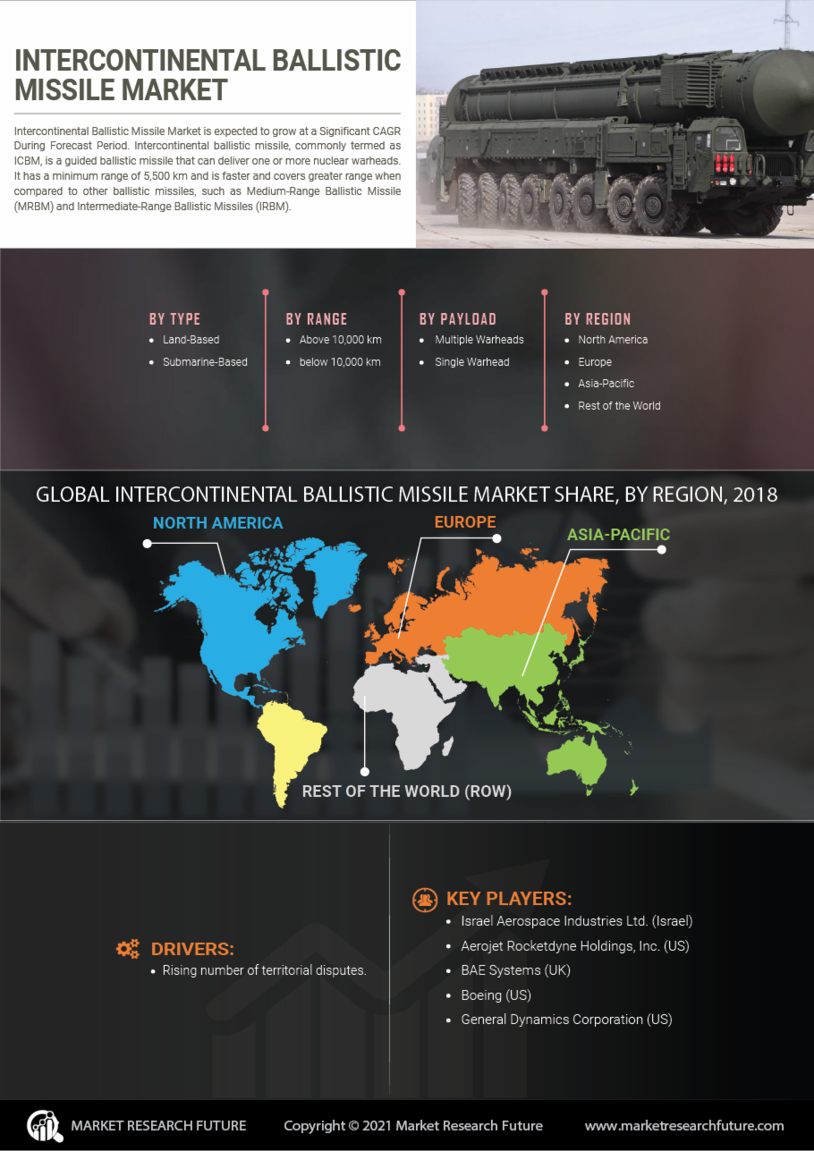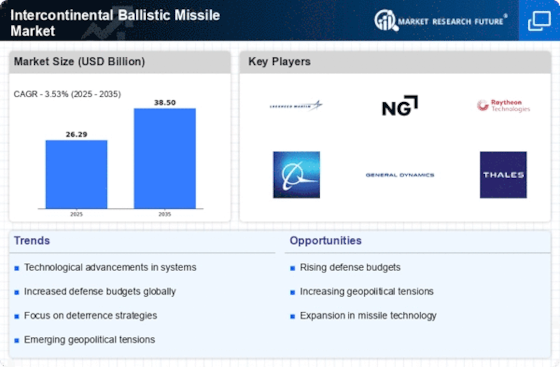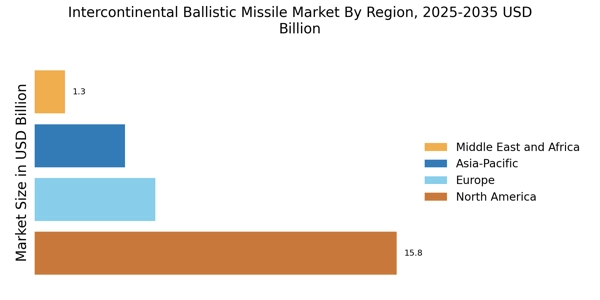Regulatory Landscape
The regulatory landscape surrounding the intercontinental ballistic missile Market is complex and multifaceted. Various international treaties and agreements, such as the Treaty on the Non-Proliferation of Nuclear Weapons, impose restrictions on missile development and deployment. However, nations often navigate these regulations to enhance their missile capabilities while maintaining compliance. The evolving nature of these regulations can create both challenges and opportunities for manufacturers in the market. For instance, countries may seek to develop dual-use technologies that can serve both civilian and military purposes, thereby circumventing certain restrictions. As nations adapt to these regulatory frameworks, the market is likely to witness shifts in production strategies and investment priorities, influencing the overall growth trajectory of the intercontinental ballistic missile sector.
Geopolitical Influences
Geopolitical tensions play a crucial role in shaping the Intercontinental Ballistic Missile Market. Nations are increasingly investing in missile capabilities as a deterrent against perceived threats from rival states. The ongoing arms race, particularly among major powers, has led to heightened military expenditures, with countries prioritizing the development of advanced missile systems. For example, recent military strategies indicate a shift towards enhancing long-range strike capabilities, which is likely to drive demand for intercontinental ballistic missiles. Additionally, regional conflicts and alliances can further complicate the landscape, as nations seek to bolster their defense postures in response to evolving threats. This geopolitical climate suggests that the market will continue to expand, with an emphasis on strategic deterrence and defense readiness.
Defense Budget Allocations
Defense budget allocations are a significant driver of the Intercontinental Ballistic Missile Market. As nations prioritize national security, military spending has seen a marked increase, particularly in missile defense systems. According to recent defense budget reports, several countries have earmarked substantial funds for the development and procurement of intercontinental ballistic missiles. This trend is particularly evident in nations that perceive a heightened threat from adversaries, prompting them to enhance their deterrent capabilities. The allocation of resources towards missile technology not only reflects strategic priorities but also influences the competitive landscape among defense contractors. As defense budgets continue to expand, the intercontinental ballistic missile market is poised for growth, driven by increased demand for advanced missile systems.
Technological Advancements
The Intercontinental Ballistic Missile Market is experiencing a surge in technological advancements, which are pivotal in enhancing missile capabilities. Innovations in guidance systems, propulsion technologies, and warhead designs are driving the market forward. For instance, the integration of artificial intelligence and machine learning into missile systems is expected to improve targeting accuracy and operational efficiency. Furthermore, advancements in hypersonic technology are likely to redefine the strategic landscape, as nations seek to develop faster and more agile missile systems. According to recent estimates, the market for advanced missile systems is projected to grow at a compound annual growth rate of over 5% in the coming years, reflecting the increasing investment in research and development. These technological strides not only bolster national defense but also influence global military dynamics.
Emerging Threats and Security Concerns
Emerging threats and security concerns are increasingly shaping the Intercontinental Ballistic Missile Market. The proliferation of missile technology among rogue states and non-state actors poses significant challenges to global security. As nations respond to these threats, there is a growing emphasis on developing advanced missile systems capable of countering potential attacks. The rise of cyber warfare and asymmetric threats further complicates the security landscape, prompting countries to invest in robust missile defense systems. This heightened focus on security is likely to drive demand for intercontinental ballistic missiles, as nations seek to enhance their deterrent capabilities. The market may also witness innovations aimed at addressing these emerging threats, ensuring that missile systems remain effective in an evolving security environment.


















